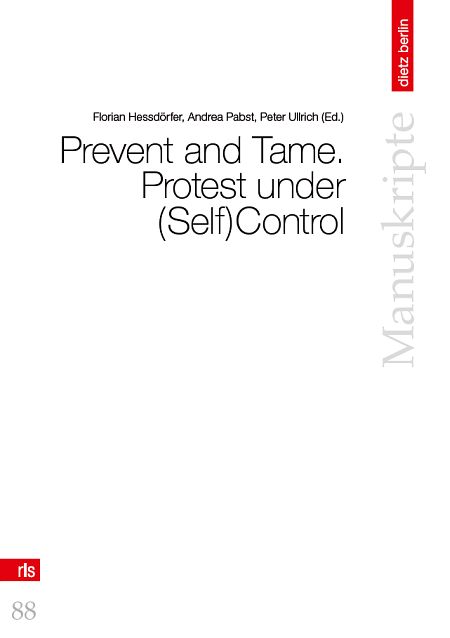Pierre Clastres: Archeology of Violence (1980/1994)
Filed under book | Tags: · anthropology, ethnology, globalisation, marxism, power, primitive society, violence

“Pierre Clastres broke up with his mentor Claude Levi-Strauss to collaborate with Gilles Deleuze and Felix Gattari on their Anti-Oedipus. He is the rare breed of political anthropologist—a Nietzschean—and his work presents us with a generalogy of power in a native state. For him, tribal societies are not Rousseauist in essence; to the contrary, they practice systematic violence in order to prevent the rise in their midst of this “cold monster”: the state. Only by waging war with other tribes can they maintain the dispersion and autonomy of each group. In the same way, tribal chiefs are not all-powerful; to the contrary, they are rendered weak in order to remain dependent on the community. In a series of groundbreaking essays, Clastres turns around the analysis of power among South American Indians and rehabilitates violence as an affirmative act meant to protect the integrity of their societies. These ‘savages’ are shrewd political minds who resist in advance any attempt at ‘globalization.'”
Translated from the French by Jeanine Herman
Publisher Semiotext(e), 1994
Foreign Agents series
200 pages
PDF (updated on 2012-7-18)
Comment (0)Hessdörfer, Pabst, Ullrich (eds.): Prevent and Tame. Protest under (Self-)Control (2010)
Filed under book | Tags: · activism, control society, governmentality, neoliberalism, power, social movements, subjectivation, surveillance

The common dualistic approach to social movements tends to see power and resistance as separate and independent antagonists.
The contributors to this book aim to transcend that approach, arguing that to adequately analyze ongoing struggles, it is also critically important to trace the constitutive interconnectedness between social movements and power. This is the aim of the title “Prevent and Tame”: emergent strategies to prevent and tame protest—whether they are undertaken by the state or by factions within the movements themselves—have given rise to new kinds of social relations and regulations that call for a new approach to research on social movements and protest.
Inspired by Foucault and others, this book offers theoretical and empirical investigation into the implications that governmentality studies and subjectivation perspectives may have for a deeper understanding of the dynamics in the relationship between power and movements. The articles reflect on the effects of current neo-liberal or neo-social transformations on social movement practice, including the impact of surveillance, the criminalization and stigmatization of protest, and how these can lead movements to engage in self-taming behavior amongst themselves.
Taken as a whole, this book suggests that to take the struggles of social movements seriously, requires to acknowledge the complexity of the power dynamics in which they are involved. In so doing, the authors’ aim is not to tame protest by over-amplifying its apparent obstacles, but to prevent its energy from being pointlessly wasted or misdirected (i.e. by being spent in the wrong places, in false conflicts, or even in fighting the clouds they cast themselves).
Includes contributions by Stephen Gill, Peter Ullrich, Florian Heßdörfer, Andrej Holm, Anne Roth, Marco Tullney, Michael Shane Boyle, Darcy K. Leach, Sebastian Haunss and Nick Montgomery
Editors: Florian Hessdörfer, Andrea Pabst, Peter Ullrich
Publisher: Rosa Luxemburg Stiftung, Karl Dietz Verlag Berlin, November 2010
Series: RLF Manuskripte, Volume 88
ISBN: 978-3-320-02246-4
The Myth of the Machine, 2 Vols: Technics and Human Development & The Pentagon of Power (1967/1970–) [DE, YU, RU, ES]
Filed under book | Tags: · art, critique of technology, history of science, history of technology, labour, language, machine, power, science, technology

Mumford explains the forces that have shaped technology since prehistoric times and shaped the modern world. He shows how tools developed because of significant parallel inventions in ritual, language, and social organization.
Publisher Harcourt, Brace & Jovanovich, 1967 and 1970
342 and 496 pages
Wikipedia (EN)
Mythos der Maschine. Kultur, Technik und Macht (German, trans. Liesl Nürenberger and Arpad Hälbig, both volumes, 1977, updated on 2014-3-19)
Pentagon moći: Mit o mašini 2 (Serbo-Croatian, trans. Nikica Petrak, 1986/2009, added on 2014-3-19)
Mif mashiny: tekhnika i razvitie chelovechestva (Russian, trans. T. Azarkovich and B. Skuratov, 2001, DJVU, added on 2014-3-19)
El mito de la máquina. Técnica y evolucion humana (Spanish, trans. Arcadio Rigodón, 2010, added on 2014-3-19)
El mito de la máquina. El pentágono del poder (Spanish, trans. Javier Rodríguez Hidalgo, 2011, added on 2014-3-19)

